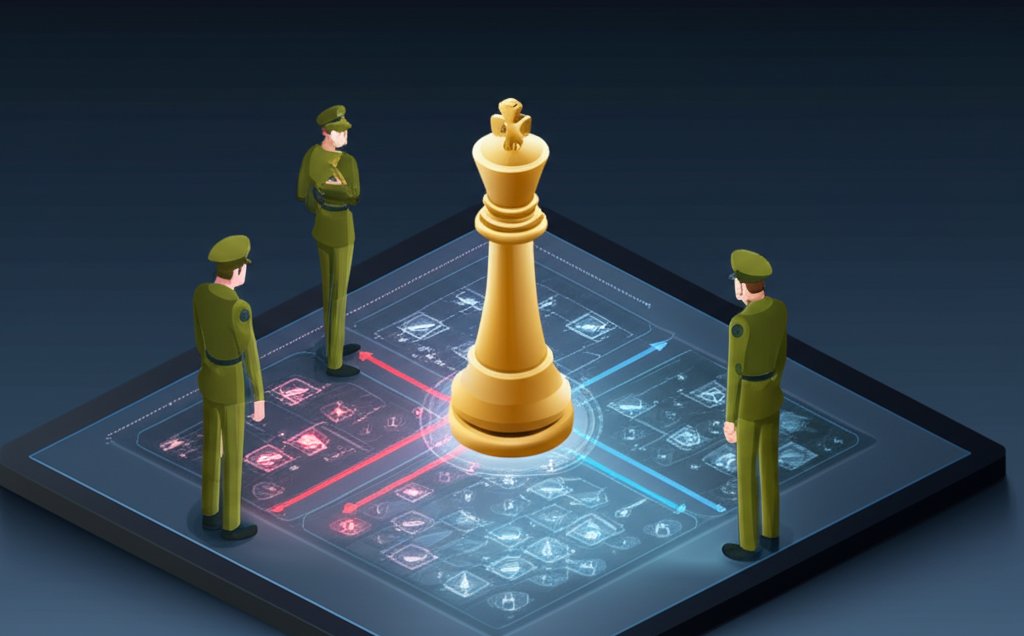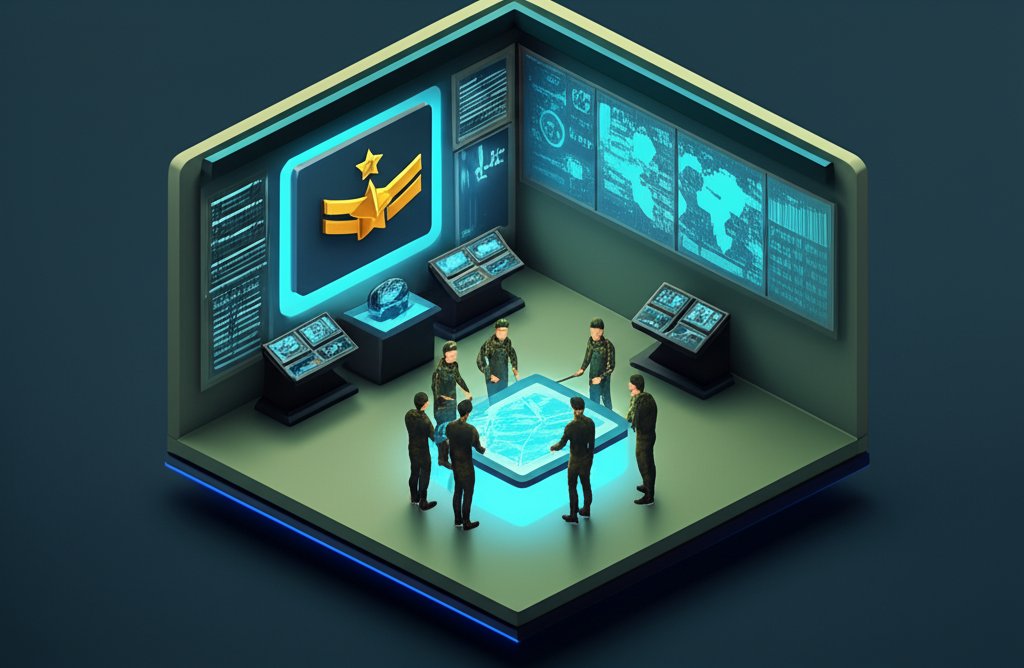Throughout the sweeping history of warfare, certain military geniuses stand out, not just for their unparalleled strategic acumen and battlefield victories, but also for the profound controversies and divisions they ignited. These exceptional military leaders wielded the power to reshape empires, redefine military strategy, and carve their names into eternity, yet their methods, personalities, and ultimate ambitions often cast long, polarizing shadows. Far from being universally lauded, these figures – the divisive military leaders of history – compel us to examine the intricate interplay between genius and moral ambiguity, triumph and human cost.
This article delves into the lives and legacies of these extraordinary commanders, exploring what truly defines a military genius, why some become deeply divisive, and the lasting impact their brilliance and betrayals have left on the world. Prepare to journey through centuries of conflict, where the lines between hero and villain often blur, revealing the complex fabric of leadership that continues to fascinate and challenge our understanding of power and purpose.
Defining Military Genius and the Seeds of Division
What elevates a mere commander to the status of a military genius? It’s an extraordinary blend of inherent talent, honed skill, and an almost preternatural ability to comprehend and manipulate the chaotic dynamics of war. These military leaders possess an unparalleled grasp of military strategy, demonstrating innovative tactical brilliance, exceptional logistical foresight, and an uncanny ability to inspire unwavering loyalty (or fear) in their troops. They can anticipate enemy movements, exploit weaknesses, and adapt to rapidly changing battlefield conditions with remarkable fluidity.
However, the very attributes that forge a genius often sow the seeds of division. Uncompromising determination can morph into ruthlessness, strategic boldness into recklessness, and a powerful will to win can overshadow ethical considerations or diplomatic necessities. Many of these figures operated at the intersection of military and political power, where ambition became a double-edged sword, and the pursuit of victory sometimes came at the cost of immense suffering or the subversion of existing orders. This inherent tension, between their undeniable accomplishments and the controversies they generated, is precisely what defines them as divisive military leaders and ensures their enduring, often debated, place in the history of warfare.
Traits That Distinguish Military Geniuses
Military geniuses possess a core set of traits that set them apart:
- Strategic Vision: The ability to see beyond the immediate battle, grasping the broader political and logistical implications of their actions.
- Tactical Innovation: A willingness to break from conventional doctrine, devising new maneuvers and technologies that surprise and overwhelm opponents.
- Logistical Mastery: The often-underestimated skill of moving, supplying, and sustaining large armies, a cornerstone of any successful military strategy.
- Psychological Acumen: Understanding human nature, both of their own soldiers and their enemies, to motivate, intimidate, and exploit.
- Adaptability: The capacity to adjust plans on the fly, interpreting fluid situations and capitalizing on unforeseen opportunities or threats.
- Unwavering Determination: A relentless drive to achieve objectives, often pushing themselves and their forces to the brink.
The Source of Their Divisiveness
The road to becoming a divisive military leader is paved with complex choices and consequences. Their divisiveness often stems from:
- Ruthlessness and Casualties: A willingness to accept high losses for strategic gains, viewing soldiers as expendable units in a grander scheme.
- Political Ambition: Many were not just soldiers but politicians, blurring the lines between military objectives and personal power, leading to civil strife or autocratic rule.
- Disregard for Norms: Breaking international or societal conventions, whether in warfare tactics or treatment of conquered peoples.
- Personality Clashes: Strong, often arrogant or mercurial personalities that alienated allies, subordinates, and rivals alike.
- Ideological Zeal: Pursuing objectives driven by extreme political or religious beliefs, leading to prolonged, devastating conflicts.
These factors contribute to a legacy where their brilliance is undeniable, yet their moral standing and the true cost of their victories remain fiercely debated entries in the history of warfare.
Architects of Empire: Ancient and Classical Divisive Geniuses
The ancient world provided fertile ground for the rise of legendary military leaders, whose campaigns not only expanded empires but also left behind legacies steeped in both admiration and condemnation. Their contributions to military strategy were groundbreaking, but their methods often barbaric, securing their place as quintessential divisive military leaders.
Alexander the Great: Conquest, Culture, and Controversy
Alexander III of Macedon, famously known as Alexander the Great, epitomizes the ancient military genius. In little over a decade (334-323 BCE), he carved out one of the largest empires of the ancient world, stretching from Greece to India. His military strategy was characterized by daring maneuvers, swift campaigns, and a personal presence on the battlefield that inspired his troops to seemingly impossible feats. He innovated on the Macedonian phalanx, integrated diverse forces, and masterfully employed siege warfare, forever altering the history of warfare.
Yet, Alexander was also a deeply divisive military leader. His ruthlessness was legendary, exemplified by the destruction of Thebes and Persepolis, and the mass executions of those who resisted. His escalating megalomania, paranoia, and heavy drinking led to the murder of trusted companions and a growing alienation from his own Macedonian generals. While celebrated for spreading Hellenistic culture, his empire dissolved upon his death, a testament to its foundation on personal charisma rather than stable institutions. His legacy remains a stark reminder that even the most brilliant conquerors can be shadowed by their own hubris and brutality.
Julius Caesar: From Republic’s Savior to Dictator’s Doom
Gaius Julius Caesar was a Roman military genius whose life story is a dramatic narrative of ambition, strategic brilliance, and political intrigue that plunged the Roman Republic into civil war and ultimately led to his assassination. His campaigns in Gaul were a masterclass in swift conquest and effective administration, showcasing his tactical prowess, engineering ingenuity (like building a bridge across the Rhine in 10 days), and ability to win hearts and minds—or brutally suppress resistance. He cultivated immense loyalty among his legions, who would follow him anywhere.
However, Caesar became one of history’s most divisive military leaders due to his insatiable political ambition. His crossing of the Rubicon, a direct challenge to the Roman Senate, ignited a civil war that devastated the Republic. His subsequent accumulation of power, becoming Dictator Perpetuo (Dictator for Life), was perceived by many as a betrayal of republican ideals, leading to the conspiracy that ended his life on the Ides of March. Caesar’s military strategy fundamentally transformed Rome, but his political machinations left a legacy of power struggles and the eventual rise of emperors, undeniably shaping the history of warfare and governance for centuries.
Reshaping Nations: Napoleonic and Revolutionary Eras
The age of revolutions and burgeoning nationalism brought forth military leaders whose impact resonated across continents. Their innovative military strategy not only secured dramatic victories but also irrevocably altered political landscapes, making them some of the most prominent divisive military leaders in the history of warfare.
Napoleon Bonaparte: The Grand Strategist and Europe’s Scourge
Napoleon Bonaparte emerged from the chaos of the French Revolution to become arguably the most iconic military genius of all time. His military strategy revolutionized warfare, emphasizing speed, deception, and the concentration of forces at decisive points. He was a master of grand tactics, employing the “battalion carré” (battalion square) and corps system to achieve rapid movement and flexible deployment. His victories at Austerlitz, Jena, and Wagram are studied by strategists even today. Beyond the battlefield, his administrative genius introduced the Napoleonic Code and reformed European institutions.
Despite his brilliance, Napoleon was a profoundly divisive military leader. His relentless pursuit of empire led to two decades of continuous conflict, known as the Napoleonic Wars, which devastated Europe and caused millions of casualties. His autocratic rule suppressed liberties, and his campaigns, most notably the disastrous invasion of Russia, showcased a hubris that ultimately led to his downfall. While revered in France as a national hero and an administrative reformer, much of Europe views him as a ruthless conqueror whose ambition plunged the continent into unprecedented bloodshed. His complex legacy underscores the fine line between genius and tyranny in the history of warfare.
Vo Nguyen Giap: Guerrilla Mastermind and Human Cost
Vo Nguyen Giap stands as a towering figure among 20th-century military geniuses, a self-taught general who led Vietnam to victory against two global powers: France and the United States. His mastery of guerrilla warfare and “total war” strategy was revolutionary, demonstrating how a determined, ideologically committed force could defeat technologically superior adversaries. From the strategic brilliance of Dien Bien Phu against the French to the protracted struggle of the Vietnam War, Giap’s military strategy epitomized resilience, adaptability, and an intimate understanding of his homeland’s terrain and people.
However, Giap remains a divisive military leader due to the immense human cost of his campaigns. His reliance on protracted guerrilla warfare and willingness to endure staggering casualties (often referred to as “human wave” tactics) drew significant criticism, even from within his own ranks. While his ultimate victories secured Vietnamese independence and unification, the strategies employed led to millions of Vietnamese deaths, both civilian and military, leaving a deep scar on the nation. His legacy forces a difficult reckoning: can military genius justify the scale of human sacrifice, and how do we weigh victory against its devastating price in the history of warfare?
Modern Warfare’s Complex Icons: 20th Century and Beyond
The 20th century, marked by two World Wars and numerous regional conflicts, continued to produce military leaders who, despite their undeniable efficacy, became figures of intense debate. Their contributions to military strategy were critical, but their personalities and actions often put them squarely in the category of divisive military leaders.
George S. Patton: Audacity, Victory, and Controversy
General George S. Patton was an American military genius renowned for his aggressive, fast-paced tank warfare tactics during World War II. His Third Army’s swift advances across France and their crucial role in the Battle of the Bulge are legendary examples of his audacity and strategic foresight. Patton believed in relentless offense, exploiting enemy weaknesses with speed and overwhelming force. He was a master motivator, inspiring his troops with his larger-than-life persona and an unwavering commitment to victory. His contributions to the Allied military strategy in the Western Front were indispensable.
Yet, Patton was also a profoundly divisive military leader. His blunt, often vulgar language, his controversial slapping incidents involving shell-shocked soldiers (which nearly ended his career), and his insubordinate tendencies made him a constant source of trouble for his superiors. He was seen by many as arrogant, uncouth, and anachronistic, embodying a warrior ethos that often clashed with military decorum and political sensitivities. While crucial to Allied victory, his difficult personality and controversial actions have ensured that his legacy remains complex and debated within the history of warfare.
Other Notable Divisive Military Leaders
Many other military leaders throughout the history of warfare fit the mold of divisive military geniuses:
- William Tecumseh Sherman (American Civil War): His “March to the Sea” pioneered total war, devastating the Confederate infrastructure and civilian morale. While effective in ending the war, it left an indelible mark of destruction and deeply divisive military strategy that still evokes strong feelings today.
- Douglas MacArthur (World War II, Korea): A brilliant strategist in the Pacific, his insubordination during the Korean War, including advocating for the use of nuclear weapons against China, led to his dramatic dismissal by President Truman, making him a symbol of the tension between military and civilian authority.
- Erwin Rommel (World War II): Germany’s “Desert Fox” was admired even by his enemies for his tactical genius in North Africa. However, he served a monstrous regime, and his effectiveness, regardless of his personal views, bolstered Hitler’s war machine, placing him in a morally ambiguous position in the history of warfare.
These figures, like their predecessors, remind us that the qualities that forge a military genius can often lead to actions that are difficult to reconcile with conventional morality or political wisdom, ensuring their status as divisive military leaders.
The Enduring Impact: How Divisive Military Leaders Shape History and Future Warfare
The legacies of divisive military leaders are far from static; they continue to evolve, provoke debate, and offer profound insights into the nature of power, conflict, and human achievement. Their actions, both brilliant and betraying, have left indelible marks on the history of warfare and continue to influence contemporary military strategy and leadership studies.
Their innovations in military strategy often become foundational, studied and adapted by generations of commanders. From Alexander’s rapid campaigns to Napoleon’s corps system, Caesar’s engineering feats, Giap’s guerrilla tactics, and Patton’s armored thrusts, these methods provided blueprints for future conflicts. Yet, the moral questions surrounding their leadership—the human cost, the ethical boundaries crossed, the political ambitions unleashed—serve as potent cautionary tales. They force us to confront uncomfortable truths about what it takes to win wars and whether victory always justifies the means.
For modern military leaders and aspiring military geniuses, the study of these divisive figures offers a complex education. It highlights the necessity of strategic foresight and tactical brilliance, but also underscores the critical importance of self-control, rational decision-making, and understanding the broader policy implications of military action. The ability to inspire dedication, a hallmark of all great military leaders, must be tempered with accountability and an awareness of the long-term societal and political consequences of one’s actions. Ultimately, the story of divisive military leaders is a testament to the enduring paradox of warfare: a realm where the greatest feats of human intellect and courage often coexist with the deepest shadows of human cruelty and ambition.
Conclusion

The annals of history of warfare are rich with the stories of military geniuses whose brilliance shone brightly, yet whose legacies are inextricably linked with controversy and division. From Alexander the Great’s empire-forging ruthlessness to Napoleon’s continent-spanning ambition, Caesar’s republican betrayal, Giap’s costly triumphs, and Patton’s audacious yet abrasive command, these divisive military leaders irrevocably shaped the world. Their innovative military strategy and unparalleled leadership skills secured extraordinary victories, but their methods, personal failings, or political machinations ensured they would never be universally celebrated.
Unmasking these figures reveals a fundamental truth about power and conflict: that genius often walks hand-in-hand with human imperfection. They remind us that true leadership in war demands not only strategic brilliance but also a profound understanding of its human and political costs. By examining their dual legacies of brilliance and betrayal, we gain invaluable insights into the complex tapestry of leadership and the enduring debates that continue to define our understanding of war and its commanders.
FAQ Section

Q1: What traits distinguish military geniuses from other military leaders?
Military geniuses are distinguished by a combination of exceptional strategic vision, tactical innovation, logistical mastery, and psychological acumen. Unlike other military leaders, they often possess an intuitive understanding of the battlefield, an ability to foresee developments, and the courage to implement unconventional military strategy that decisively shifts the course of conflict. They are not merely competent but often revolutionary in their approach to war.
Q2: How do military geniuses balance their ego and determination with the need for rational decision-making in the heat of battle?
Achieving this balance is one of the greatest challenges for military geniuses, and often where their “divisive” nature emerges. While fierce determination is crucial, excessive ego can lead to hubris and poor judgment, as seen in Napoleon’s Russian campaign or Alexander’s increasingly erratic behavior. The most effective military leaders strive for rational thinking, employing self-control, careful analysis, and leveraging trusted advisors, but the pressure and personal ambition can often tip the scales, leading to controversial decisions.
Q3: What are the common strategies and tactics employed by divisive military geniuses?
Divisive military geniuses often employ high-risk, high-reward military strategy. Common tactics include rapid maneuvers, concentrated attacks on weak points, extensive use of deception, and a willingness to accept high casualties for strategic objectives. They might also break conventional rules of engagement, engage in total warfare (like Sherman), or use unconventional methods like guerrilla warfare (like Giap), which, while effective, often lead to immense suffering and controversy.
Q4: How does the political acumen of military geniuses influence their military campaigns?
The political acumen of military geniuses is often as crucial as their military skill. Figures like Julius Caesar and Napoleon Bonaparte understood that military success could translate directly into political power. They leveraged victories to garner popular support, influence governments, and consolidate authority. However, this blend of military and political ambition often made them divisive military leaders, as their pursuit of power could undermine existing political structures or lead to civil conflict.
Q5: What are the lasting legacies of divisive but accomplished military geniuses and how do they shape our understanding of warfare and leadership?
The lasting legacies of these divisive military leaders are complex. They forever alter the history of warfare through their innovative military strategy and profound impact on geographical and political landscapes. They force us to confront the ethical dilemmas of war, prompting ongoing debates about the morality of their actions versus their effectiveness. Their stories contribute to our understanding of leadership by showcasing both the heights of human ingenuity and the depths of potential human failing, influencing how future military leaders are trained and how war itself is viewed.
Q6: What role does betrayal or controversy play in defining a military leader as “divisive”?
Betrayal or controversy is central to defining a military leader as “divisive.” Whether it’s Caesar’s perceived betrayal of the Roman Republic, Alexander’s brutal suppression of dissent, Napoleon’s autocratic rule, or Patton’s public gaffes, these actions create a chasm in how they are remembered. Their genius is acknowledged, but their methods or ultimate aims are fiercely debated, preventing universal acclaim and solidifying their status as divisive military leaders.
Q7: Are there modern examples of divisive military leaders who are also considered military geniuses?
Identifying contemporary divisive military leaders who can be definitively labelled “military geniuses” requires historical distance and perspective, as their full impact and moral complexities are still unfolding. However, figures involved in modern conflicts, particularly those employing unconventional military strategy or leading controversial campaigns (e.g., certain commanders in asymmetric warfare or those navigating highly politicized conflicts), often display elements of strategic brilliance alongside significant public or ethical debate, placing them on a similar trajectory towards being divisive military leaders in the history of warfare.
Q8: How has military strategy evolved due to the actions of these historical figures?
The military strategy of these historical figures profoundly shaped the history of warfare. Alexander established combined arms tactics, Caesar demonstrated rapid logistical deployment and siegecraft, Napoleon introduced the corps system and total war concepts, Giap revolutionized guerrilla tactics, and Patton epitomized armored maneuver warfare. Each of these military geniuses introduced fundamental innovations that were adopted, adapted, and refined by subsequent generations, forever changing how wars are planned and fought.










